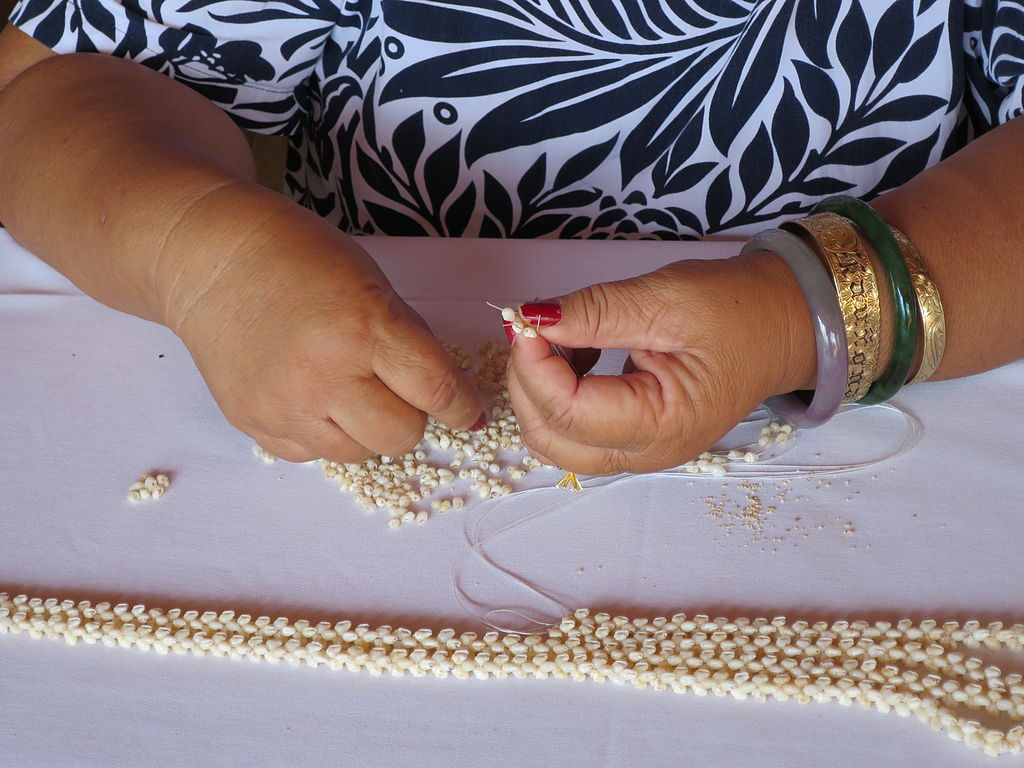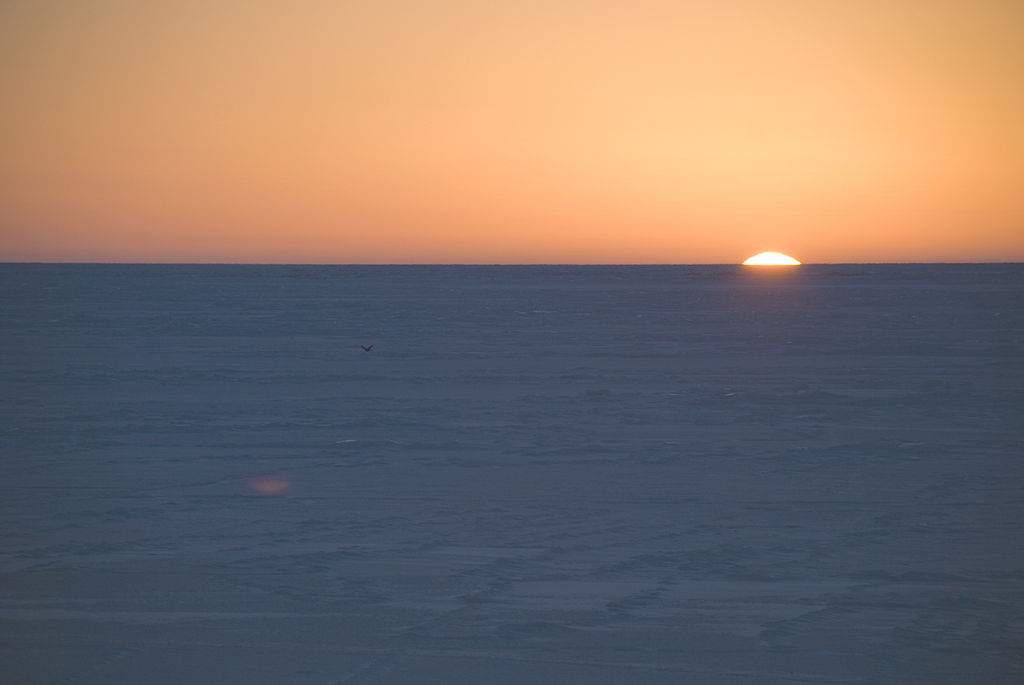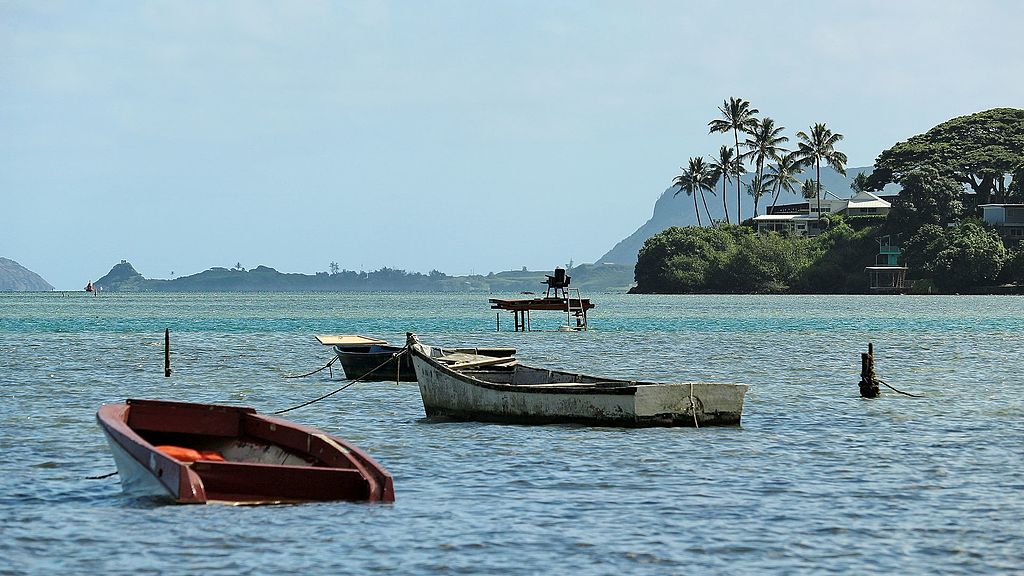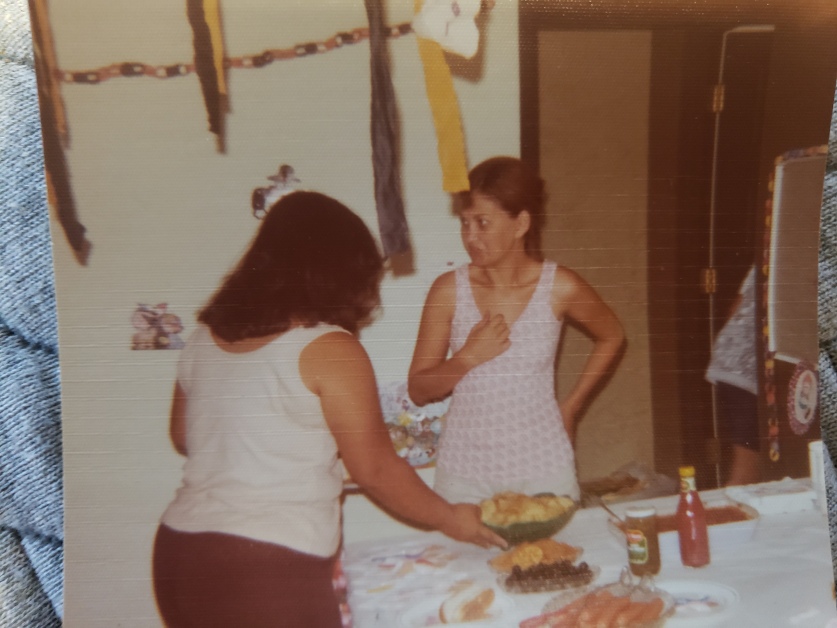On losing and reclaiming my Hawaiian culture.
I couldn’t begin to count how many times I’ve had the same conversation.
I’ll say something like “Oh, look I have a puka in my pants,” and point to, you know, a hole in my pants. I’ll get a funny look from the person I’m talking to and explain.
“Sorry, I mean a hole,” I translate. “I have a hole in my pants.”
“Oh,” they’ll say, usually with a furrowed brow. “But isn’t it a shell? Puka shells?” They’ll run their hands over the neck, pantomiming a necklace. Mention how much they love theirs.
“No,” I’ll say with a smile. “Puka means hole. A puka shell is a just shell with a hole in it.”
Sometimes people are interested, wanting to know more. I get asked a lot if I know any Hawaiian and I’ll say ʻŌlelo Hawaiʻi because if you’re really interested in learning a language a good place to start is its actual name.
But more often than not, people will look at me with a kind of confusion. A disbelief that might be a reluctance to be wrong about anything. Some get mad and defend their knowledge. A puka is a shell, and they know it. The lady at the little Waikīkī shop told them so, the end. Good day to me.
I used to get very, very angry at those folks. I’d argue. Or not argue and feel ashamed; guilty about not standing up for myself. For my culture. I felt responsible for allowing that kind of misinformation to remain unchecked. To not have educated or changed minds. To have failed at my job as a Very Good Native to combat the pervasive ignorance that comes standard when your culture is reduced to a tourist attraction.
After the feelings of anger and guilt subsided, I’d invariably find myself thinking about Grandma. She and her siblings were literally part of the attraction, representing “authentic Hawaiian culture” through the sharing of song, dance, and crafts. Uncle Ray and his kids filled the courtyard of the Hawaiian Regent with mellow island music while Grandma and her sisters rotated through hula performances they had been perfecting for years. In between dances, the women gathered around long banquet tables covered with heavy, flora-filled calabashes. They welcomed everyone to the table, eager to teach visitors the art of making corsages. The technique was the basis for creating the elegant lei po’o we all wore and Grandma and my aunties were proud to share their expertise.
Dark brown hands worked in quick, practiced movements while smiling tourists tried earnestly to keep up. We keiki milled about, hovering near the flower table until we got bored with making corsages. Then we’d be off to play with tourist children, showing them all the best hiding places in the lobby until their parents said it was time for them to go across the street to the beach.
Though I’ve always been prone to self-doubt, it wouldn’t have occurred to me in those days to actually argue with anyone if they tried to correct me on the definition of the word ‘puka’. I would have just shared a look with my cousins and laughed, uproariously. As a young Hawaiian girl surrounded by my Hawaiian family, I felt incredibly sure. I took almost all of my knowledge for granted, as children do.
But within the span of a single year, my dad was paralyzed and Uncle Ray died. The Maunupau family band was no more, but I didn’t even realize it because Grandma stayed home to be my father’s caretaker. She mostly stopped going to my cousin’s flower shop. Stopped taking us to be part of the cultural flair at the Hawaiian Regent. We no longer participated in the Kamehameha Day lei draping ceremony and the knowledge I once took for granted became something I didn’t think about at all.
As the months passed, I became even more unmoored. My childhood home, which had always been a refuge, had turned into my father’s hospice. An already tenuous relationship with my mother erupted into frantic screaming matches in which I told her how much I hated her again and again. I stayed out all night with a group of equally unmoored teenagers and found a new kind of home in that sense of communal bewilderment. Together we loitered the streets of Waikīkī, bumming for change until we had enough to sit on the rock wall at Fort DeRussy beach with a bottle of the cheapest liquor available at the ABC Store on Lewer’s Street.
I was a drunk fourteen year-old runaway the first time I heard anyone complain about needing to “get off the rock” of the only home I’d ever known. In that moment I felt a deeply wounding shock, but also the thrill of possibility and escape. It was the biggest, surest kind of running away I had ever imagined, and the idea found a tentative foothold in the place where the dependable presence of my grandmother, my Hawaiian family, used to be.
I may have only left Hawaiʻi at eighteen, but by then I was so far removed from the childhood of my”authentic Hawaiian culture” that I barely felt Native at all. Whenever my knowledge was questioned in my new Northwest home (which was nearly every time I brought it up), I was rattled. I doubted the knowledge I once took for granted as a young girl playing in the lobby of the Hawaiian Regent.
It was easy for me to be angry with people when I was so filled with self-doubt. I needed them to believe that puka does indeed mean hole. Or that the pronunciation of the ʻokina in the word Hawaiʻi actually is important. Whenever someone didn’t fill that need, it uncovered a sense of loss reaching not just to the bits of ʻŌlelo Hawaiʻi I have forgotten, but to the entirety of the family that once had me so thoroughly rooted I would have laughed at the thought of having to convince someone of something as simple as the meaning of a single word.
It has taken me over twenty years to understand the devastation of that year my family stopped being the cultural experts at a prominent Waikīkī hotel. Twenty years of questioning my place in my culture, and my memories of it. Twenty years of being angry. Of letting the fact that I became unmoored at the age of twelve to keep me bereft and disconnected from the last important thing I ever knew to be true: that my family loved me, and they were once my everything.
The thought of leaving “the rock” was deeply shocking the first time I heard it. Less than five years later I did just that, and have felt heartbroken and disjointed ever since. But even more important than going home is the need to feel rooted again. To be so sure of myself that I can just laugh instead of feeling compelled to argue.
Over the past few years I’ve been making a real effort to fill that empty sense of rootlessness. I’ve reconnected with cousins who have always made Hawaiʻi homeland, instead of just the place I am from. I’ve researched my roots, learning about how a mixed-race Kanaka, Chamorro, Scots, Norwegian girl came to live in a townhouse in Temple Valley. I’ve found people in Seattle – ones I don’t have to spend my time explaining Hawaiʻi to because we all call Hawaiʻi back home. I’m slowly coming to terms with the homesickness that will always be present so long as I live away from my islands. I’m finding ways to soften the blow.
It’s been a long road, this recovery from the collapse of my idyllic local girl childhood. There are many more steps left to take. I’ll probably always get irritated whenever someone insists that puka means shell, or tries to correct my pronunciation of Hanauma Bay. I may never really be able to laugh quite as uproariously as I did when I was a little girl, oblivious to anything outside the warm arms of my ʻohana. But maybe I can stop being hesitant, unsure of myself and the things I used to know so well all those years ago. I can work towards that, at least, rather than wasting my time trying to convince people who aren’t interested in learning anyway.
Who cares if they think ‘puka’ means a shell? I know the truth, and I’m going to let that be enough.
Image of a woman from Niʻihau making a lei pūpū via Wikimedia Commons




It seems that trauma induced separation is a common theme running in many Hawaiian families I know, including mine.
Sending you my aloha, Deb. I know so many of us have deep scars and bear the burden of leaving. There are many scars in the colonized Pacific, and I hope that by binding together as we have done these past few months, we are able to find our way back from trauma.
Much love.
Simply beautiful…